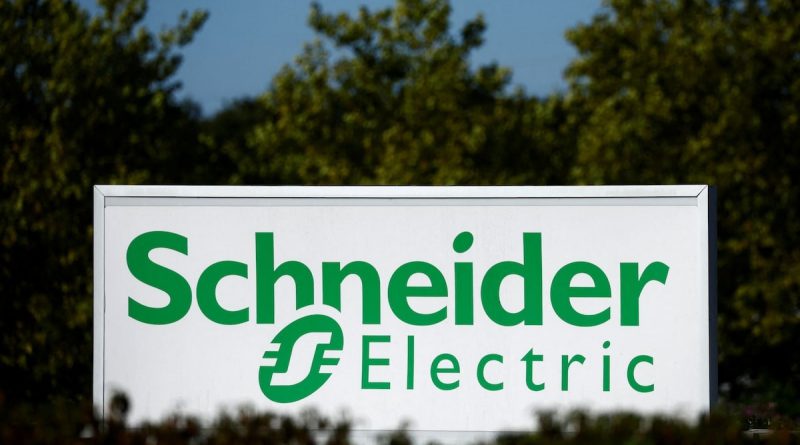Schneider Electric Secures $2.3 Billion in U.S. Data Center Deals Amid Rapid AI Expansion
Schneider Electric announces major U.S. data-center partnerships as the accelerating AI boom drives unprecedented demand for cooling, power and digital infrastructure.
Schneider Electric has finalized nearly $2.3 billion in agreements with two major U.S. data-center operators, a move that underscores the soaring infrastructure requirements created by accelerating artificial intelligence adoption.
The company unveiled the deals at an industry gathering in Las Vegas, highlighting both the scale of new demand and Schneider’s growing role in global AI infrastructure expansion.
The first agreement, valued at $1.9 billion, has been signed with Switch, a private technology firm known for its extensive data-center campuses and energy-efficient digital facilities.
This partnership will supply advanced power modules and next-generation cooling systems, aimed at supporting the rising density of AI hardware and strengthening long-term operational resilience.
A second agreement worth $373 million has been secured with Texas-based Digital Realty, one of the world’s largest data-center developers and a major provider of cloud-interconnection services.
Under this deal, Schneider will supply uninterruptible power systems and specialized switchgear, critical components for data-center reliability as computing loads climb sharply across AI platforms.
A company spokesperson confirmed that both contracts will be delivered in phases across 2025 and 2026, reflecting the long-term buildout cycles required to keep pace with explosive AI-driven demand.
Schneider has become one of the leading suppliers of data-center infrastructure worldwide, offering server racks, cooling technology and modular power systems essential to AI operations.
The company is also collaborating closely with Nvidia to design cooling solutions capable of supporting the chipmaker’s most advanced AI processors, which generate significant heat output.
Cloud giants including Amazon, Google, Meta and Microsoft continue to scale up rapidly, with combined infrastructure spending expected to exceed $360 billion in 2025.
These hyperscalers are competing to secure the high-density compute capacity needed for AI models, accelerating global investment in power systems, thermal management and data-center expansion.
Schneider said the Switch partnership represents its largest North American cooling-services deal to date, announced at a time when energy consumption from AI data centers is becoming a national challenge.
The company emphasized that its new cooling and power solutions can scale AI capacity without a proportional rise in energy demand, a key objective as electricity usage intensifies.
Industry executives increasingly acknowledge that current data-center infrastructure was not originally designed to handle the extreme power requirements of modern AI compute clusters.
U.S. utilities are now grappling with surging demand from AI-focused facilities, raising concerns about grid stress, regional shortages and the need for upgraded transmission capacity.
Analysts estimate that global power usage from data centers could triple within the next three years, highlighting the urgency of developing efficient cooling systems and energy-optimized technologies.
For Schneider Electric, the data-center segment already contributes nearly a quarter of its total revenue, and the company is expected to outline new AI-related growth targets at its upcoming capital markets day.
The event, scheduled in London in mid-December, may give investors clearer insight into Schneider’s strategy amid global competition for AI infrastructure leadership.
The new U.S. partnerships reinforce Schneider’s position as a key supplier to the world’s fastest-growing tech sectors, providing foundational power systems as AI adoption accelerates across industries.
They also highlight the broader shift toward large-scale data-center investments, driven by the rapid rise of generative AI models that require massive computational and electrical resources.
As artificial intelligence reshapes global demand for digital capacity, Schneider Electric’s new agreements reflect a strengthened strategic role in building the next generation of sustainable AI infrastructure.



